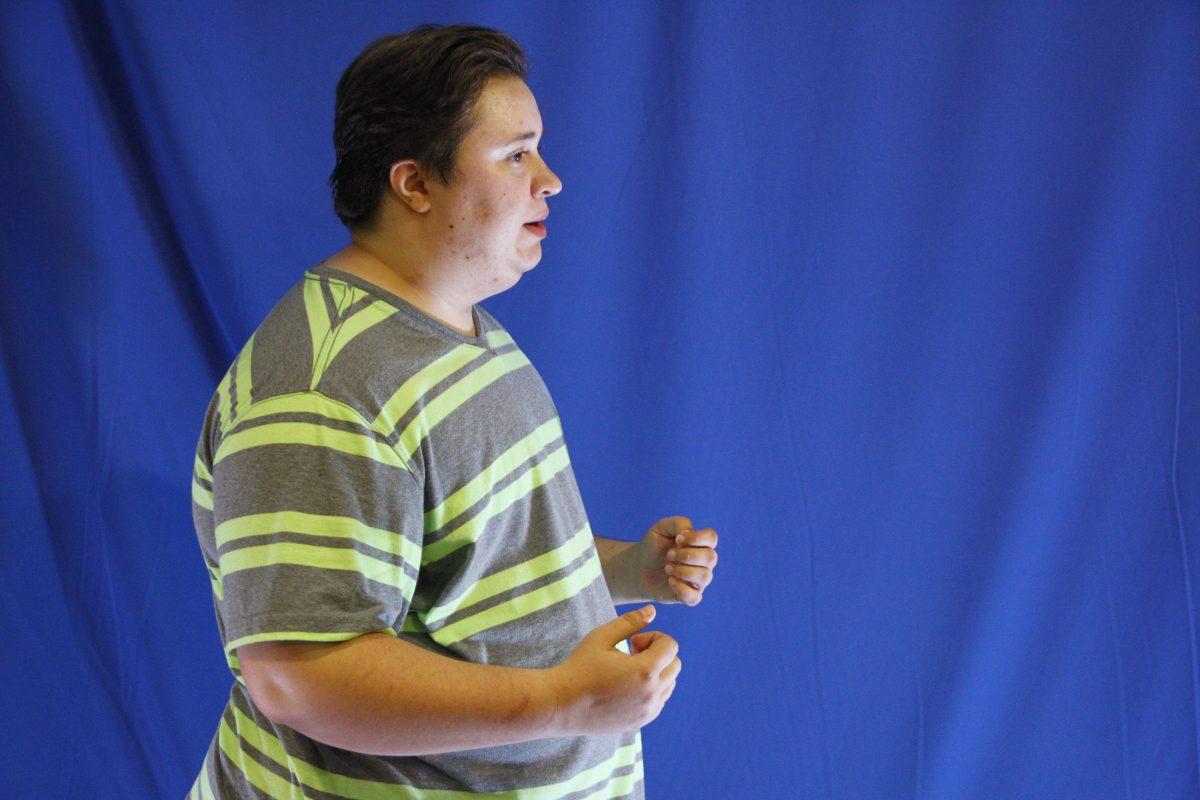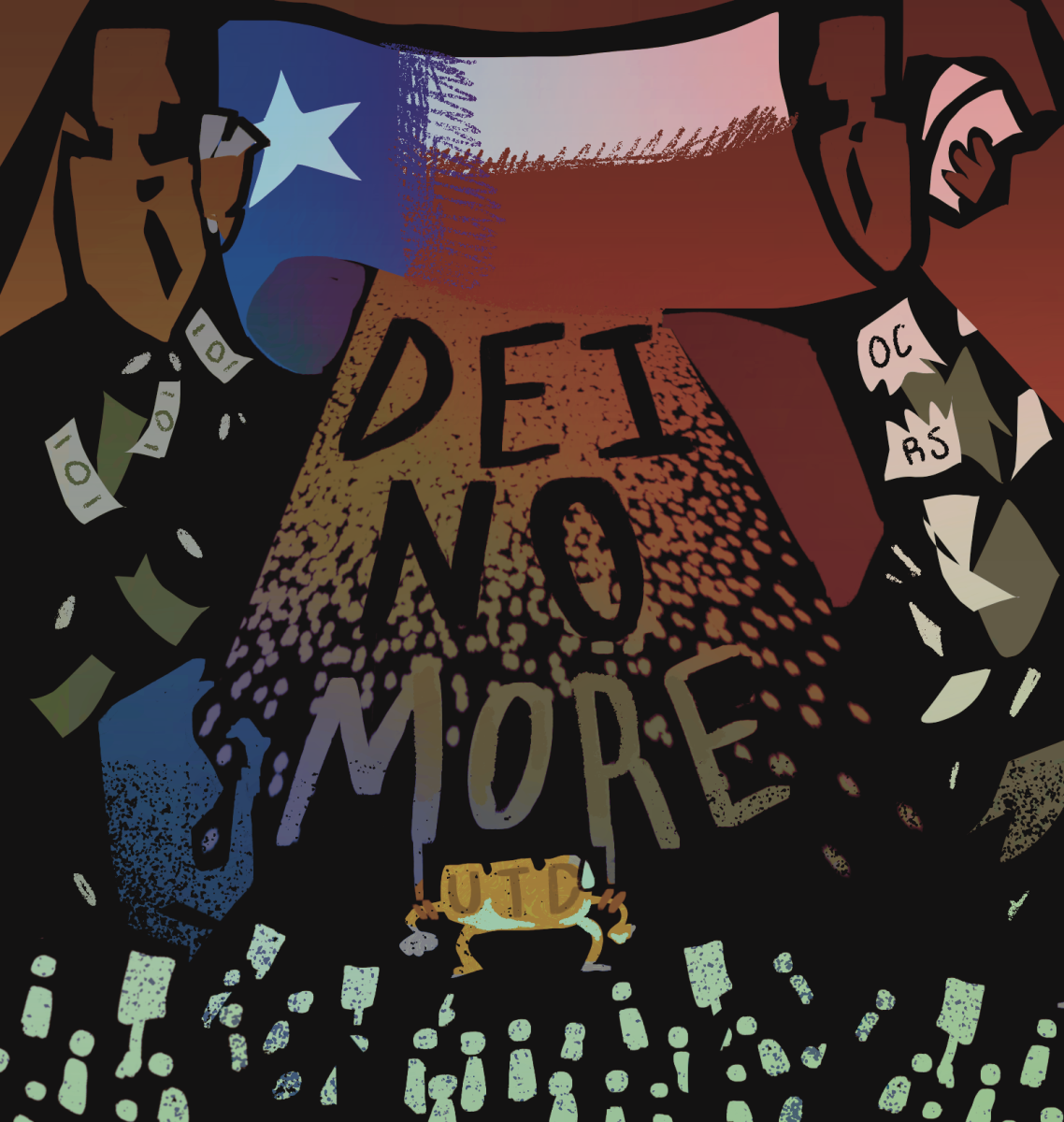The tension in Emmett Orton’s voice heightened as he explained his experiences as an LGBT student at UTD.
One evening, Orton, a psychology junior, was in the parking lot behind Hoblitzelle Hall when a man approached him and tried to talk to him. Orton got in his car and left without responding because he got nervous, and while driving home, he noticed a car following him.
After an hour of driving all the way to another city and in circles to lose the car, the person following him finally gave up and left. Orton said he doesn’t know for sure if it was the same man who tried to talk to him earlier, but he assumed it was.
“I don’t know why he picked me,” he said. “I don’t know if he would’ve picked someone else that was similar to me, but I think he sensed that I was vulnerable because I am who I am and that kind of seeps out of me whether I want it to or not.”
Even though Orton is not sure why he was followed, he said the incident reflects the hidden dangers on campus, despite the safe atmosphere.
Another instance where Orton felt the lurking intolerance was when a professor refused to change Orton’s name on the roster to his preferred name, despite his requests. Orton, who identifies as a non-binary and transgender man, filed a Title IX violation in order for the professor to change the name.
“It was very stressful getting through the rest of that class after I had complained to Title IX because she was unhappy,” he said.
This was one of the instances in which Orton discovered that people slip under the surface of UTD’s welcoming environment.
“I suppose it makes sense that wherever queers gather, there are people who hate queers. Nowhere is safe,” he said.
Orton uses an example of how, although Seattle ranks high in the LGBT population, it also ranks high with LGBT murders. He said discrimination is even higher with LGBT students who are different ethnicities and religions.
“When you’re at the intersection of lots of different identities, lots of different people hate you,” he said.
Although Orton said he is still nervous about “being out,” he would rather be at UTD than any other school. Part of the reason he chose UTD is because of the Campus Pride Index, an online service students can look at to see different LGBTQ friendly campuses.
In May 2017, UTD moved from a 3.5 to a 4.5 out of 5-star rating on the Campus Pride Index. The Index considers eight different categories, each with a list of criteria, and based on how many of the criteria are met, each campus is given a ranking.
Matthew Johns, assistant director of LGBT programs at the Galerstein Gender Center, met with different UTD departments to assist in meeting different criteria. He worked with the housing department to achieve gender inclusive housing, as well as the counseling and health services on campus for trans-inclusive student health insurance.
Housing and the counseling services helped meet the remaining criteria in the LGBTQ Housing and Residential Life and LGBTQ Counseling and Health categories, which he said he believed is a big reason for the extra point on the Index.
“No matter what campus you go to, you’re going to run into all different types of people,” Johns said. “So just because we have a 4.5 out of 5-star doesn’t mean that we’re (a) perfect university when it comes to LGBT inclusion. But I know, just by walking across this campus and having different events such as National Coming Out Day, the vibe here on campus is so inclusive and it’s different than a lot of universities.”
Because Orton lives at home, he never had to experience the former housing situation at UTD.
“Being LGBT and being forced to be around however many unknown variables is really frightening, especially coming straight out of a homophobic environment,” he said.
Workers at the Galerstein Gender Center assisted in helping meet different criteria for the Index. Senior literary studies major Zackary Gentry started the LGBT alumni organization to earn points in the LGBTQ Support and Institutional Commitment category.
While uncertain of whether he checked the Index before he enrolled at UTD, Gentry reached out to other students to ask about the campus’ culture.
“You can have lots of things on the Campus Pride Index and then maybe the culture can be different,” Gentry said. “It was really nice to see that people were saying the culture is reflective of the Campus Pride Index score.”
Although the Index indicates that people support LGBT culture, for Emmett Orton, it shows that the majority of a demographic can easily mask the minority, “allow(ing) bigots to hide.”
“It’s a mixed bag,” he said. “If you come here and you’re not out and you see all these people, this diverse gender spectrum, lots of different gay and lesbian people, that’s really validating, and it’s comforting. But at the same time, you know that makes you visible.”

















